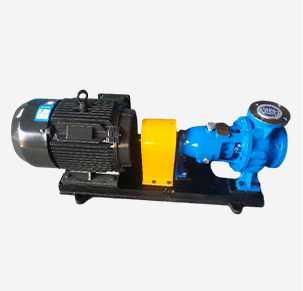Basque
- Afrikaans
- Albanian
- Amharic
- Arabic
- Armenian
- Azerbaijani
- Basque
- Belarusian
- Bengali
- Bosnian
- Bulgarian
- Catalan
- Cebuano
- Corsican
- Croatian
- Czech
- Danish
- Dutch
- English
- Esperanto
- Estonian
- Finnish
- French
- Frisian
- Galician
- Georgian
- German
- Greek
- Gujarati
- Haitian Creole
- hausa
- hawaiian
- Hebrew
- Hindi
- Miao
- Hungarian
- Icelandic
- igbo
- Indonesian
- irish
- Italian
- Japanese
- Javanese
- Kannada
- kazakh
- Khmer
- Rwandese
- Korean
- Kurdish
- Kyrgyz
- Lao
- Latin
- Latvian
- Lithuanian
- Luxembourgish
- Macedonian
- Malgashi
- Malay
- Malayalam
- Maltese
- Maori
- Marathi
- Mongolian
- Myanmar
- Nepali
- Norwegian
- Norwegian
- Occitan
- Pashto
- Persian
- Polish
- Portuguese
- Punjabi
- Romanian
- Russian
- Samoan
- Scottish Gaelic
- Serbian
- Sesotho
- Shona
- Sindhi
- Sinhala
- Slovak
- Slovenian
- Somali
- Spanish
- Sundanese
- Swahili
- Swedish
- Tagalog
- Tajik
- Tamil
- Tatar
- Telugu
- Thai
- Turkish
- Turkmen
- Ukrainian
- Urdu
- Uighur
- Uzbek
- Vietnamese
- Welsh
- Bantu
- Yiddish
- Yoruba
- Zulu
Telephone: +86 13120555503
Email: frank@cypump.com
Abe . 21, 2024 03:26 Back to list
Reliable Sump Pump Solutions for Clear Water Management in Your Home
The Importance of Clean Water Sump Pumps Essential for Homeowner Peace of Mind
Maintaining a dry and healthy home environment is a priority for any homeowner. Among the many tools available to help achieve this goal, clean water sump pumps play a critical role. These devices are essential for preventing flooding and water damage in basements and crawl spaces, ensuring that residences remain safe and habitable.
Sump pumps are typically installed in the lowest part of a home—usually the basement or a crawl space—to collect and remove excess water. The basic functioning of a sump pump involves a collection basin (or sump pit) where water accumulates. Once the water reaches a pre-defined level, the pump is activated, transporting the water away from the foundation of the house, typically to a drainage area or a dry well. The most common types of sump pumps are submersible and pedestal pumps, each with its own set of advantages.
One of the primary benefits of using a clean water sump pump is its ability to protect the home from flooding. During heavy rainstorms or rapid snowmelt, groundwater levels can rise, leading to potential flooding. A sump pump acts as the first line of defense, quickly removing water from the basement and preventing damage to flooring, walls, and personal belongings. This protection is essential not only for maintaining the integrity of the home but also for preserving the value of the property. Water damage can lead to costly repairs and can even affect home insurance premiums.
clean water sump pump

Moreover, sump pumps play a vital role in preventing the growth of mold and mildew. Damp environments are like havens for mold, which can pose serious health risks to residents. By keeping areas dry, a sump pump reduces humidity levels and prevents the conditions that allow mold to thrive. Consequently, maintaining good air quality within the home is a significant advantage.
For homeowners who might be considering the installation of a sump pump, there are several factors to take into account. First and foremost, choosing the right type of pump is crucial. Submersible pumps are designed to be submerged in water, making them effective for high-volume situations, while pedestal pumps are easier to service and can be more durable in specific scenarios. Additionally, it’s essential to ensure that the sump pump has a sufficient horsepower rating to effectively handle the volume of water expected in a flooding scenario.
Regular maintenance is also necessary to ensure the reliability of a sump pump. Homeowners should periodically check the pump for any signs of functionality issues, such as strange noises or failure to activate. Cleaning the sump pit and checking the discharge line for clogs can also help maintain the pump's efficiency.
In conclusion, clean water sump pumps are an indispensable tool for homeowners looking to protect their properties from water damage and related health issues. By providing a proactive solution to excess water management, these pumps not only contribute to the physical integrity of a home but also ensure the well-being of its occupants. Investing in a sump pump, along with regular maintenance and checks, can bring peace of mind and safeguard against the unpredictable forces of nature. With the right setup, homeowners can enjoy their living spaces without the looming threat of flooding, making sump pumps a vital asset in home safety.
-
ISG Series Vertical Pipeline Pump - Chi Yuan Pumps Co., LTD.|High Efficiency, Energy Saving, Low Noise
NewsJul.30,2025
-
ISG Series Vertical Pipeline Pump- Chi Yuan Pumps|High Efficiency&Low Noise
NewsJul.30,2025
-
ISG Series Vertical Pipeline Pump-Chi Yuan Pumps Co., LTD.|High Efficiency&Energy Conservation
NewsJul.30,2025
-
ISG Series Vertical Pipeline Pump - Chi Yuan Pumps Co., LTD.|Advanced Hydraulic Design&Energy-Efficient Solutions
NewsJul.30,2025
-
ISG Series Vertical Pipeline Pump - Chi Yuan Pumps Co., LTD.
NewsJul.30,2025
-
ISG Series Vertical Pipeline Pump - Chi Yuan Pumps Co., LTD.|energy-efficient fluid handling&industrial durability
NewsJul.30,2025










